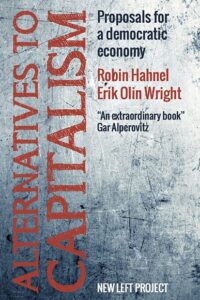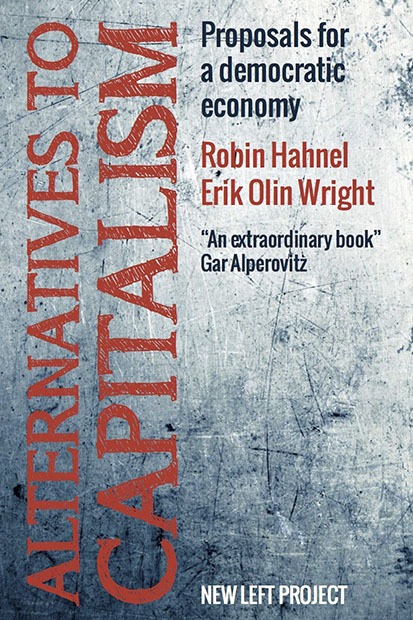 Erik Olin Wright, co-author of Alternatives to Capitalism: Proposals for a democratic economy, has a new article in Jacobin that asks some important questions about the nature and limits of different kinds of anti-capitalist politics today. His argument that “Anticapitalism isn’t simply a moral stance against injustice — it’s about building an alternative” resonates with the reconstructive perspective of social ecology.
Erik Olin Wright, co-author of Alternatives to Capitalism: Proposals for a democratic economy, has a new article in Jacobin that asks some important questions about the nature and limits of different kinds of anti-capitalist politics today. His argument that “Anticapitalism isn’t simply a moral stance against injustice — it’s about building an alternative” resonates with the reconstructive perspective of social ecology.
Short excerpt:
… It is not an illusion that capitalism has transformed the material conditions of life in the world and enormously increased human productivity; many people have benefited from this. But equally, it is not an illusion that capitalism generates great harms and perpetuates unnecessary forms of human suffering.
The pivotal issue is not whether material conditions on average have improved in the long run within capitalist economies, but rather whether, looking forward from this point in history, things would be better for most people in an alternative kind of economy…
The article goes on to discuss four distinct approaches to anti-capitalism, described as attempts to “smash,” “tame,” “escape” or “erode” capitalism, with a preference for the latter approach, combined with elements of social-democratic efforts to tame the system:
The strategic vision of eroding capitalism imagines introducing the most vigorous varieties of emancipatory species of noncapitalist economic activity into the ecosystem of capitalism, nurturing their development by protecting their niches, and figuring out ways of expanding their habitats. The ultimate hope is that eventually these alien species can spill out of their narrow niches and transform the character of the ecosystem as a whole.
This way of thinking about the process of transcending capitalism is similar to the popular, stylized story told about the transition from pre-capitalist feudal societies in Europe to capitalism. Within feudal economies in the late Medieval period, proto-capitalist relations and practices emerged, especially in the cities. Initially this involved commercial activity, artisanal production under the regulation of guilds, and banking.
Much food for thought here…


